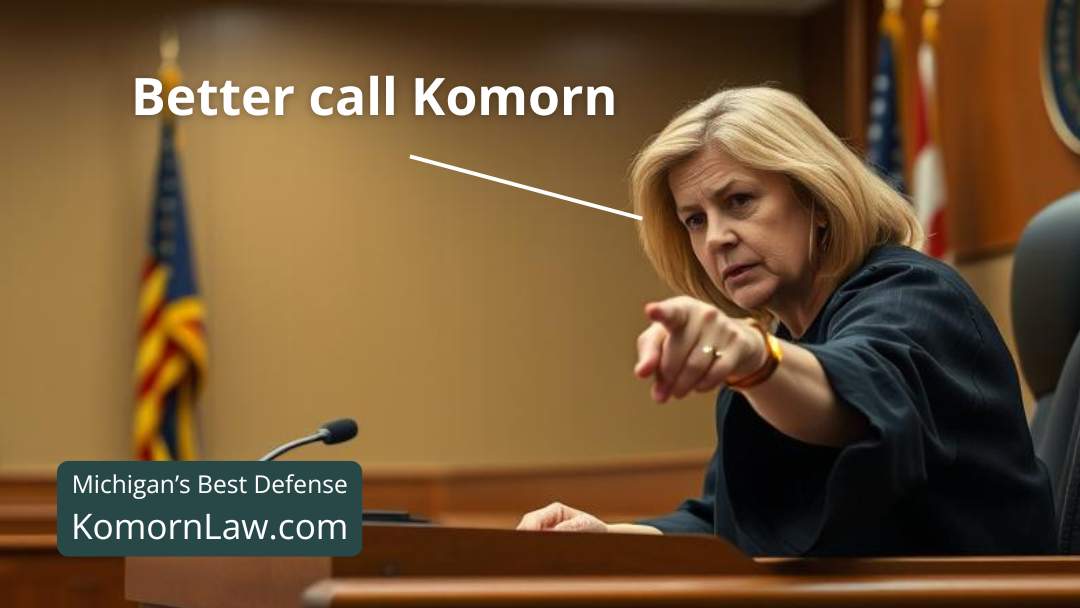
Nov 18, 2023 | Blog, USA news
WASHINGTON, D.C. ― Equipped with a quorum of Commissioners for the first time since 2018, the bipartisan United States Sentencing Commission voted today to promulgate amendments to the federal sentencing guidelines. “The Sentencing Commission is back in business,” said Chair Carlton W. Reeves. “Today, we are listening to Congress and the public by increasing first steps toward second chances, taking targeted action on gun trafficking and fentanyl, and expanding alternatives to incarceration. The policies issued today are common-sense ideas that will increase public safety while strengthening our communities.” Watch the public meeting.
During the pandemic, federal judges saved lives using their authority in 18 U.S.C. § 3582(c)(1)(A) to reduce sentences for incarcerated people facing “extraordinary and compelling” circumstances like certain risks posed by COVID-19. Responding to the First Step Act’s directive to increase the use and transparency of this tool, the Commission updated its guidelines to reflect lessons learned since the pandemic, ensure judges can continue to take first steps toward second chances for those who deserve them, and reunite families through appropriate reentry. “Judges are in the best position to decide if someone deserves to have the length of their sentence revisited,” said Chair Reeves. “This policy trusts courts to continue doing what is right.”
Since the Commission last had a quorum, communities across the country have struggled with the ills of gun trafficking and fentanyl. Congress directed the Commission to act on gun trafficking through the Bipartisan Safer Communities Act of 2022, while the Drug Enforcement Administration asked the Commission to evaluate possible action on fentanyl. In response, the Commission voted to take targeted action on both issues. “The problems of gun trafficking and drug overdoses demand a comprehensive response,” said Vice Chair Claire Murray. “I am proud to say the Commission is doing its part by ensuring we have proportional sentences for serious offenses.”
The Commission is also revising guidance to courts regarding people facing their first federal conviction. Relying on data and extensive analysis about recidivism, the Commission is acting to maximize public safety and encourage consideration of alternatives to incarceration. “Our new policies revise the sentencing guidelines based on empirical research and experience,” said Vice Chair Laura Mate. “This careful, evidence-based approach will increase fairness in sentencing and keep our communities safe.”
Among the many other policies issued by the Commission are those that seek to address ghost guns, sexual abuse of incarcerated people by correctional employees, clarify acceptance of responsibility points for defendants, and implement criminal justice legislation passed by Congress. “The policies issued today reflect the wide spectrum of views we received through public hearing testimony and tens of thousands of letters,” said Chair Reeves. “The policies issued today prove, beyond a doubt, that when you speak to the Commission, you will be heard.”
While the newly reconstituted Commission concludes its first policymaking cycle, there is more work to do. In the year to come, the Commissioners will continue to study a number of proposed policies, including those regarding how the guidelines treat acquitted conduct and the “categorical approach” to the career offender guideline. In the meantime, the Commission will send final amendments to Congress by May 1, 2023. If Congress does not act to disapprove the amendments, they will take effect on November 1, 2023. Visit the Commission’s website for more information about the amendment process and the changes approved today.

Nov 7, 2023 | Blog, News, USA news
U.S. SENTENCING COMMISSION VOTES TO ALLOW RETROACTIVE SENTENCE REDUCTIONS AND ANNOUNCES ITS NEXT SET OF POLICY PRIORITIES
Vote Authorizes Judges to Reduce Sentences for Eligible Incarcerated Persons Beginning February 1, 2024 Should Guidelines Become Effective
WASHINGTON, D.C. — Today the Commission, by a majority vote, allowed for delayed retroactive application of Amendment 821 relating to criminal history—meaning that certain currently incarcerated individuals could be eligible for reduced sentences made effective beginning on February 1, 2024 (unofficial text). The Commission also adopted its next set of policy priorities that include, among other things, reviewing and potentially amending how the guidelines treat acquitted conduct for purposes of sentencing as well as assessing the degree to which certain Bureau of Prisons practices are effective in meeting the purposes of sentencing.
Equipped with a quorum of commissioners for the first time since 2018, the Commission voted in April to promulgate amendments to the federal sentencing guidelines—including Amendment 821 providing for targeted, evidence-based changes to certain criminal history rules. Because two parts of that amendment reduce the sentencing range of future defendants, the Commission is required by law to consider whether judges can extend those reductions to previously sentenced individuals.
The Commission voted to delay implementation of any order granting such reduced sentences to ensure that, to the extent practicable, all individuals who are to be released have the opportunity to participate in reentry programs and transitional services that will increase the likelihood of successful reentry to society.
U.S. District Judge Carlton W. Reeves, Chair of the Commission said, “Our decision today is one that brings hope to thousands of currently incarcerated people and their families. We listened to a full spectrum of views and considered the full costs associated with incarceration balanced with the time needed to review petitions and prepare for successful reentry.”
Part A of Amendment 821 limits the overall criminal history impact of “Status Points” at §4A1.1. Part B, Subpart 1 of Amendment 821 creates a new Chapter Four guideline at §4C1.1 decreasing by two the offense levels for defendants who did not receive any criminal history points and whose instant offense did not involve specific aggravating factors.
Judge Reeves added, “These prospective changes to the criminal history rules made by the Commission in April reflect evidence-based policy determinations that apply with equal force to previously sentenced individuals. Applying these changes retroactively will increase fairness in sentencing. At the same time, the 3-month delay will help ensure that individuals released based on our decision today receive the benefit of reentry programs and transitional services essential to support their successful reentry to society, which at the same time promotes public safety.”
The Commission estimated in its July 2023 Impact Analysis that retroactive application would carry a meaningful impact for many currently incarcerated individuals:
11,495 incarcerated individuals will have a lower sentencing range under Part A of Amendment 821 relating to “Status Points” with a possible sentence reduction of 11.7%, on average.
7,272 incarcerated individuals would be eligible for a lower sentencing range based upon the established criteria under Part B of Amendment 821 relating to “Zero-Point Offenders” with a possible sentence reduction of 17.6%, on average.
Today’s vote concludes two months of deliberations and the first amendment year of policy work for the commissioners, who were all confirmed last August. As part of its deliberations, the Commission received expert testimony and public comment from a wide spectrum of stakeholders, including senators, judges, lawyers, religious leaders, doctors, professors, advocates, victims, families, and incarcerated individuals.
This year’s guideline amendments are with Congress for a 180-day review period ending November 1, 2023. If Congress does not act to disapprove the amendments, courts can begin considering petitions for sentence reductions and could order a reduced term of imprisonment effective February 1, 2024 or later.
Today, the Commission also finalized policy priorities for the amendment year ending May 1, 2024. In light of the 40th anniversary of the Sentencing Reform Act (SRA), the Commission anticipates undertaking a number of projects examining the degree to which current sentencing, penal, and correctional practices are effective in meeting the purposes of sentencing as set forth in the SRA.
Among these issues, the Commission will work to assess the degree to which certain practices of the Bureau of Prisons are effective in meeting the purposes of sentencing as set forth in 18 U.S.C. § 3553(a)(2). The Commission will also compile and disseminate information on court-sponsored programs relating to diversion, alternatives-to-incarceration, and reentry.
The Commission will also review and potentially amend how the guidelines treat acquitted conduct for purposes of sentencing. The Supreme Court recently denied several petitions for writs of certiorari related to the use of acquitted conduct. In issuing the denials, three Justices supported the denial to allow the Commission more time to address the issue. “Last year’s amendment cycle was busy and abbreviated. The Commission appreciates the opportunity to give proper attention to acquitted conduct, and we will do so this year,” said Judge Reeves.
The Commission will continue to examine the career offender guidelines, including updating the data analyses and statutory recommendations made in the Commission’s 2016 report to Congress entitled Career Offender Sentencing Enhancements. The Commission will also continue its consideration of alternative approaches to the “categorical approach” through workshops convened to discuss the scope and impact of the career offender penalty enhancements.
The Commission will further continue its research agenda through examination of various issues, including methamphetamine offenses, sentencing differences for cases disposed of through trial versus plea, and sentences involving youthful individuals.
The Commission invited public comment on its tentative list of policy priorities in June. “We are grateful for the volume of comment the Commission received regarding priorities for the coming year,” said Chair Reeves. “We look forward to continued input from the public as we work through this year’s priorities.” A compilation of public comment can be reviewed here.
Visit www.ussc.gov for more information about the amendment process and the changes approved today.

Nov 6, 2023 | Blog, USA news
The federal U.S. Sentencing Commission (USSC) has approved a revised amendment to sentencing guidelines, advising judges to adopt a more lenient approach towards prior marijuana possession offenses.
Members of the commission voted to approve a range of amendments to the current guidelines, incorporating a multi-part revision of criminal history.
This revised version now encompasses cannabis possession as a compelling illustration of an offense that typically necessitates contemplation for sentencing discretion.
As it currently stands, federal judges are instructed to consider previous convictions, which include cannabis offenses at the state level, as aggravating factors when determining sentencing for new cases.
But as legalization of marijuana expands to more states, advocates have been advocating for revised guidelines to prevent an individual’s marijuana-related record from contributing criminal history points that could result in harsher sentencing.
The proposal does not aim to completely eliminate marijuana convictions as a factor in criminal history. However, it suggests modifying the commentary within the guidelines to consider instances where a downward departure from the defendant’s criminal history may be appropriate, specifically mentioning sentences resulting from possession of marijuana offenses.
“While marihuana remains a Schedule I controlled substance under the federal Controlled Substances Act (CSA), subjecting offenders to up to one year in prison (and up to two or three years in prison for repeat offenders), many states and territories have reduced or eliminated the penalties for possessing small quantities of marihuana for personal use,” it notes.
The term ‘downward departure’ refers to situations where federal judges exercise their discretion to impose sentences that are below the recommended minimum under current guidelines.
It is crucial to recognize and explicitly acknowledge that mere possession of cannabis, without any intent to sell or distribute it to others, presents a compelling case that warrants leniency in sentencing.
By doing so, we uphold the principle of fairness and ensure that appropriate discretion is exercised in such circumstances.
USSC’s report in January exposed a disturbing reality: countless individuals faced harsher federal prison sentences as a consequence of their prior convictions on cannabis possession charges in states that have since enacted reforms to marijuana laws.
The revised guidance is on track to be presented to Congress by May 1 2023, and once accepted without opposition from lawmakers, the amendment will officially take effect on November 1.
Follow up…
ADOPTED AMENDMENTS (EFFECTIVE NOVEMBER 1, 2023)

Jul 29, 2023 | Federal Laws
United States Attorney Roger B. Handberg, along with Special Agent in Charge Kareem Carter for the IRS – Criminal Investigation Washington D.C. Field Office, and Special Agent in Charge David Walker for the FBI – Tampa Division, announces that Vitalii Chychasov (37, Ukraine) has pleaded guilty to conspiracy to commit access device fraud and trafficking in unauthorized access devices relating to his administration of SSNDOB Marketplace, a series of websites that operated for years and were used to sell personal information, including the names, dates of birth, and Social Security numbers belonging to individuals in the United States.
The SSNDOB Marketplace has listed the personal information for millions of individuals in the United States, generating more than $19 million in sales revenue.
Charged with drug possession, driving under the influence of marijuana or alcohol?
Contact Komorn Law Immediately to ensure your rights are recognized 248-357-2550.
On June 7, 2022, seizure orders were executed against the domain names of the SSNDOB Marketplace, effectively ceasing the website’s operation.
Chychasov faces a maximum penalty of 15 years in federal prison, and as part of his plea agreement, he has agreed to forfeit the internet domains BLACKJOB.BIZ, SSNDOB.CLUB, SSNDOB.VIP, and SSNDOB.WS, which were used to commit the offenses and were part of the series of domains that comprised the “Marketplace.” Chychasov also agreed to a forfeiture money judgment in the amount of $5 million, the proceeds of the access device fraud.
Chychasov was arrested in March 2022 while attempting to enter Hungary; and was extradited to the United States in July 2022. A second SSNDOB Marketplace administrator, Sergey Pugach, was arrested in May 2022.
According to court records, the SSNDOB administrators created advertisements on dark web criminal forums for the Marketplace’s services, provided customer support functions, and regularly monitored the activities of the sites, including monitoring when purchasers deposited money into their accounts.
The administrators also employed various techniques to protect their anonymity and to thwart detection of their activities, including strategically maintaining servers in various countries, and requiring buyers to use digital payment methods.
Stolen Social Security numbers can be used to commit a variety of frauds, including United States tax fraud, unemployment insurance fraud, loan fraud, credit card fraud, and the like. Investigators determined that a single buyer from the site used stolen personal identifying information that he purchased to steal and launder nearly $10 million.
The U.S. investigation was led by the IRS – Criminal Investigation Cyber Crimes Unit and the FBI – Tampa Division, with assistance from the IRS-Criminal Investigation’s Tampa Field Office. Substantial assistance was also provided by the Department of Justice’s Office of International Affairs, the FBI’s Legal Attaché Offices responsible for Latvia and Cyprus, the Latvian Police, and the Cypriot authorities.
The case is being prosecuted by Assistant United States Attorney Rachel Jones and the asset forfeiture is being handled by Assistant United States Attorney Suzanne Nebesky.
If you or someone you know has been accused of a crime or DUI.
Call Komorn Law and turn the odds in your favor.
Call Now 248-357-2550
Komorn Law Social Media
Recent Posts
Tag Cloud
Blog
Cannabis Science
Criminal Defense Attorney Michael Komorn
Driving
DUI
Forfeiture
Health Benefits of Marijuana
Hemp
Know Your Rights
Komorn Law Blog
LARA-MMFLA Info
Legalization
Marijuana Criminal Defense Attorney Michael Komorn
Medical Marijuana
Medical Marijuana Attorney Michael Komorn
Michigan Laws
Michigan Medical Marhuana Regulation
Michigan Medical Marijuana Act
Michigan Medical Marijuana Criminal Defense
Michigan Medical Marijuana Criminal Defense Attorney Michael Komorn
Michigan News
Michigan Supreme Court
News
Planet Green Trees Radio
Recent Victories
Supreme Court
Uncategorized
USA news
Victories Project
Your Rights
DISCLAIMER
This website and/or post may contain re-posted content, opinions, comments, ads, third party posts, outdated information, posts from disgruntled persons, posts from those with agendas, private stuff, work related information, non work related information and general internet BS. Therefore…Before you believe anything on the internet regarding anything and everything – do your research on “Official Government and State Sites”, Call the Michigan State Police, Check the State Attorney General Website and Consult an Attorney – Use Your Brain. You’re on the internet.





















